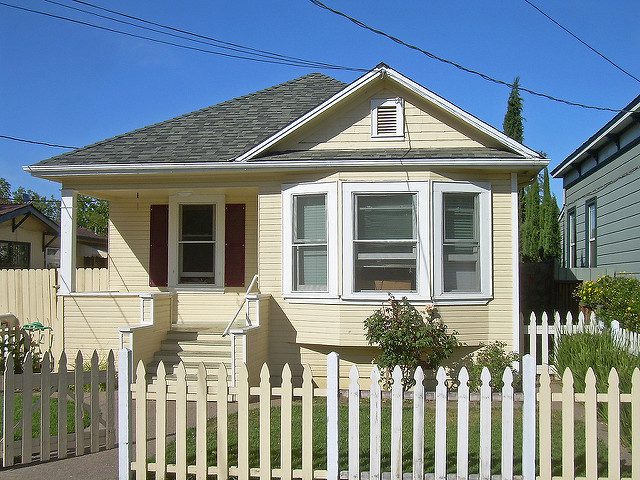Best Deal on a House

Buying a house is one of the most significant investments most people will make in their lives. Negotiating the best deal on a house can save you thousands of dollars and ensure that you get the home that best fits your needs and budget. Effective negotiation requires preparation, knowledge, and a strategic approach. Here’s a comprehensive guide on how to negotiate the best deal on a house.
1. Do Your Homework
Before you start negotiating, it’s crucial to have a solid understanding of the local real estate market. Research the recent sales prices of similar homes in the area to get a sense of what the house is worth. Websites like Zillow, Realtor.com, and Redfin provide valuable information on property values, market trends, and neighborhood statistics.
Understand Market Conditions: The state of the market can greatly influence your negotiating power. In a buyer’s market, where there are more homes for sale than buyers, you have more leverage. In a seller’s market, where demand exceeds supply, sellers have the upper hand. Knowing the market conditions helps you set realistic expectations.
Know the Property’s History: Investigate the property’s history, including how long it has been on the market, any previous offers, and the reasons for selling. A home that has been on the market for a long time may indicate that the seller is more willing to negotiate.
2. Get Pre-Approved for a Mortgage
Having a pre-approval letter from a lender shows sellers that you are a serious and qualified buyer. It can give you an edge over other potential buyers who have not been pre-approved. Pre-approval also helps you understand your budget and limits, which is essential for making a competitive and realistic offer.
3. Hire a Skilled Real Estate Agent
A knowledgeable and experienced real estate agent can be your greatest ally in the negotiation process. They have access to comprehensive market data, understand the nuances of negotiating deals, and can provide invaluable advice. Choose an agent with a good track record in your desired area.
4. Craft a Strong Offer
When making an offer, consider the following components:
Price: Based on your research and the advice of your real estate agent, determine a competitive yet reasonable offer price. Avoid lowball offers that might offend the seller and diminish your chances of negotiating successfully.
Earnest Money: This is a deposit made to demonstrate your commitment to the purchase. Offering a higher earnest money deposit can show the seller that you are serious about buying the house.
Contingencies: These are conditions that must be met for the sale to proceed. Common contingencies include financing, home inspection, and appraisal. While contingencies protect you as a buyer, being flexible with them can make your offer more attractive. For example, if you’re confident in the property’s condition, you might waive the home inspection contingency to stand out.
5. Be Prepared to Negotiate Beyond Price
Price is a critical aspect of the negotiation, but other factors can also be negotiated to your advantage:
Closing Costs: These are fees associated with finalizing the purchase of a home. Negotiating with the seller to cover part or all of the closing costs can save you money upfront.
Closing Date: Flexibility with the closing date can be a powerful negotiating tool. If the seller needs more time to move out, offering an extended closing period could be beneficial.
Repairs and Improvements: After the home inspection, you may discover that the property needs repairs. You can negotiate for the seller to complete these repairs before closing or to reduce the sale price to cover the cost of the repairs.
Inclusions: Items such as appliances, fixtures, or furniture can be included in the sale. Negotiating for these items can save you money on purchases you would otherwise have to make.
6. Maintain Emotional Detachment
Buying a home is an emotional process, but it’s crucial to remain as objective as possible during negotiations. Falling in love with a property can cloud your judgment and weaken your negotiating position. Be prepared to walk away if the terms are not favorable. There are always other properties available, and being willing to walk away shows the seller that you are not desperate. Come and visit their official site to get more useful tips and ideas about buying a house.

7. Leverage Information
Information is power in negotiations. If you know the seller’s motivations, you can tailor your offer to meet their needs. For example, a seller who needs to relocate quickly might be more willing to accept a lower offer for a faster closing. Understanding the seller’s position helps you craft a more appealing offer.
8. Keep Communication Open and Professional
Effective communication is key to successful negotiation. Respond promptly to inquiries and be clear and respectful in your communications. Building a positive rapport with the seller or their agent can facilitate smoother negotiations.
9. Consider a Personal Touch
Sometimes, a personal touch can make a difference. Writing a heartfelt letter to the seller explaining why you love their home and how you envision your future there can create an emotional connection. Sellers often have a personal attachment to their homes and may prefer selling to someone who appreciates their property.
10. Stay Patient and Persistent
Negotiations can take time, and there may be several rounds of counteroffers. Stay patient and persistent, and keep your end goals in mind. Each step in the negotiation brings you closer to achieving the best possible deal.
Conclusion
Negotiating the best deal on a house requires preparation, strategy, and effective communication. By doing thorough research, getting pre-approved for a mortgage, hiring a skilled real estate agent, crafting a strong offer, and being prepared to negotiate beyond price, you can increase your chances of securing a favorable deal. Remember to stay objective, leverage information, maintain open communication, and be patient throughout the process. With these tips, you’ll be well-equipped to navigate the negotiation process and achieve your dream of homeownership at the best possible price.



